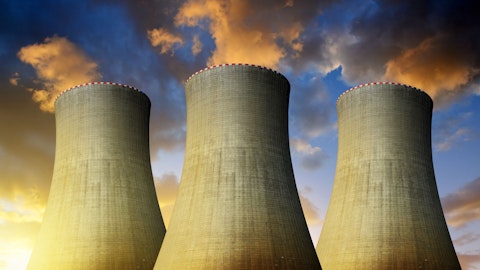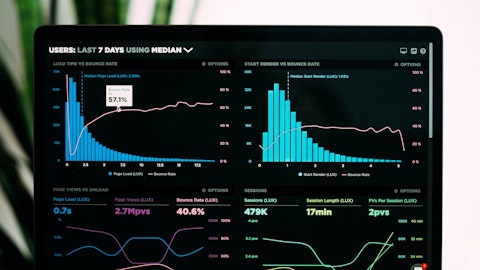Joseph Dominguez: And Steve, to your question, how long. I can’t get a sense it’s how long is this price is going to continue to unfold. But right now, I think this is where we’re going to be at for a number of years. We just — the philosophy here is pretty plain and simple. We’re never going to be in a position where we don’t have fuel for our machines. We’re going to take that risk issue off the table for ourselves and for our owners. And so that’s driving our plans right now. And I think and given what I’m saying with the Russian situation, what we’re all saying it’s going to be like this for a while, maybe permanent.
Steven Fleishman: Okay. Secondly, on the hydrogen project. When we think about how you’re going to capture returns there, obviously you’ll have an investment and some kind of, as you said, contracts for the hydrogen. But how should we think about the interaction between the nuclear plant and what it sells its power at to the hydrogen projects? Like is — will some of the return come from that side, too? Or how should we think about that?
Daniel Eggers: Yes. I think that when you look at the returns, right, the power sales have got to stand on their own, right? We look at the returns or economics of the hydrogen facility, the input production of hydrogen in sale, that’s what we’re talking about, the double-digit leverage returns. So the investment there, the production and sale of the hydrogen is going to make economic sense on its own. The generation will be sold at a price that makes sense for us also. So we’re not co-mingling our returns adjusted by a hydrogen bill.
Joseph Dominguez: Yes. Steve, it’s a really cool kind of investment because in a certain sense, if energy prices were to decline, there’s incremental value on the hydrogen side because of what’s happening. Let’s just kind of pretend some numbers here. Let’s suppose prices go from $40 to $35. From a company standpoint, we’re going to get the tax credit that will true us back up at $43.75 for the energy sale. Plus production of hydrogen just became cheaper. So it’s — we’ve talked about it quite a bit here. It’s one of these interesting things that’s been the Holy Grail in this business. How do you find many businesses that are negatively co-variant to natural gas? So that actually, when natural gas prices go down, it’s a better story for Constellation and the top line story is immediately what’s happened to power prices.
The floor support in the PTC does that to a significant degree, as Dan mentioned. But the other piece of it that’s interesting is this interaction between power prices, making hydrogen even more economically viable at lower prices. So it’s the ability to get both of these production tax credits that makes it a very good strategic way for us.
Steven Fleishman: Great. And last question just on — obviously, last fall, you were very focused on M&A at the time and now not as much. And maybe you could give us some perspective on just what are you seeing in the nuclear M&A market that from the processes you’ve kind of been looking at it such? And how does that kind of impact your thoughts on that for the future?





